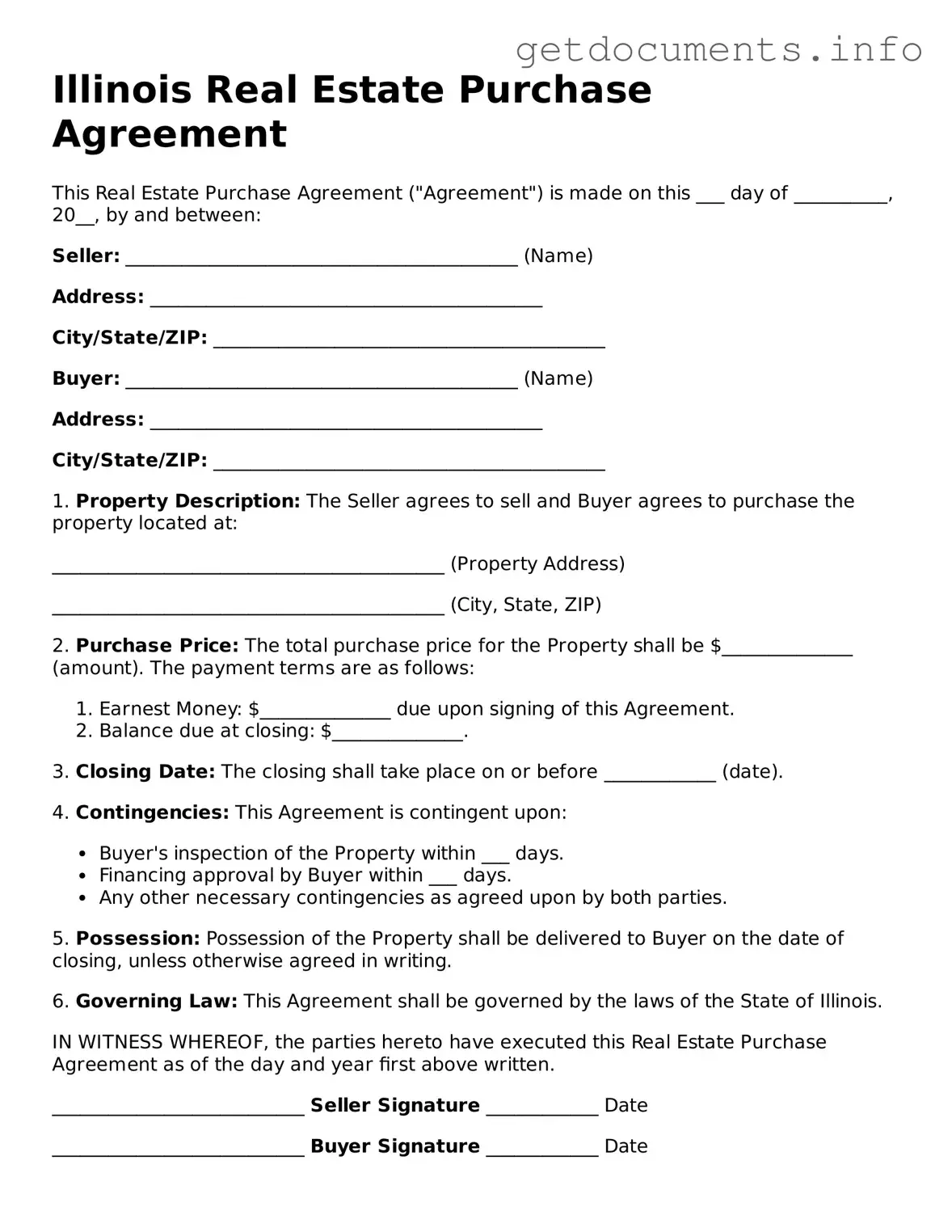Free Real Estate Purchase Agreement Template for Illinois
The Illinois Real Estate Purchase Agreement is a legal document that outlines the terms and conditions of a property sale in Illinois. This form serves as a binding contract between the buyer and seller, detailing important aspects such as the purchase price, closing date, and any contingencies. Understanding this agreement is crucial for anyone involved in real estate transactions in the state.
Ready to start your real estate journey? Fill out the form by clicking the button below.
Access Real Estate Purchase Agreement Editor

Free Real Estate Purchase Agreement Template for Illinois
Access Real Estate Purchase Agreement Editor
Got places to be? Complete the form fast
Fill out Real Estate Purchase Agreement online and avoid printing or scanning.
Access Real Estate Purchase Agreement Editor
or
⇩ PDF File
